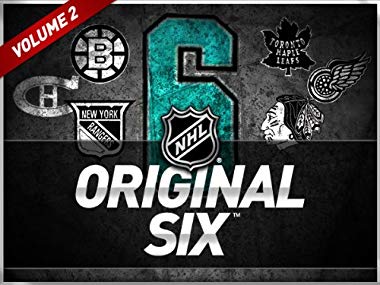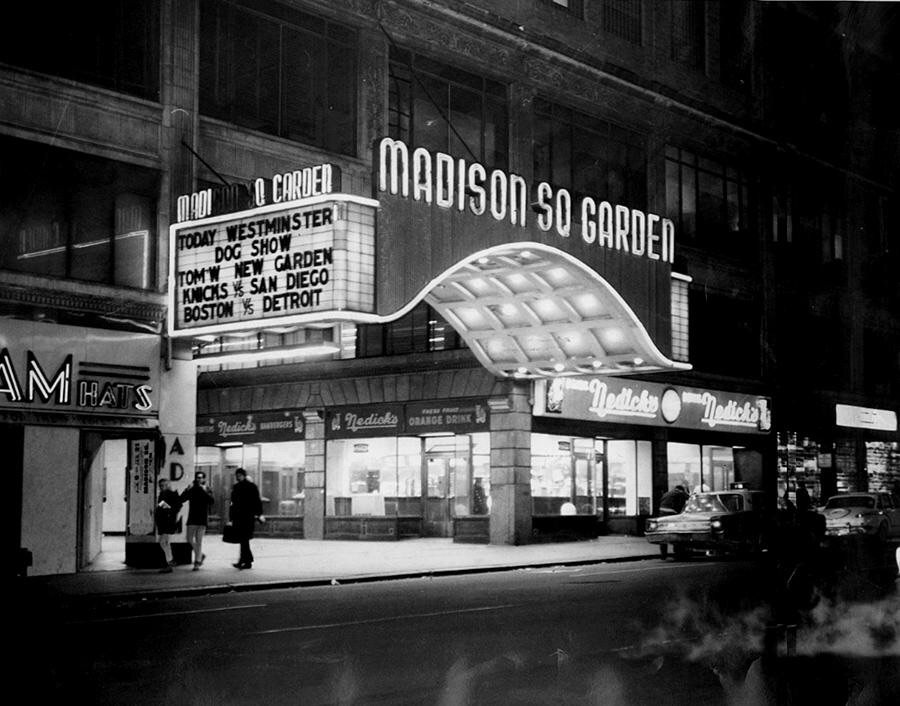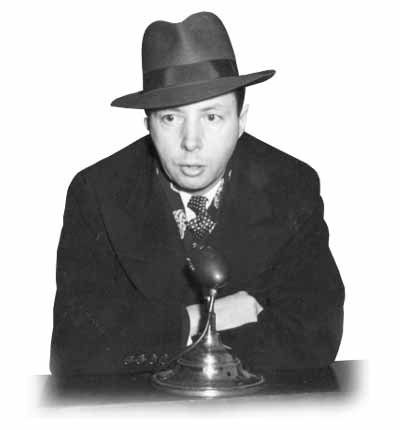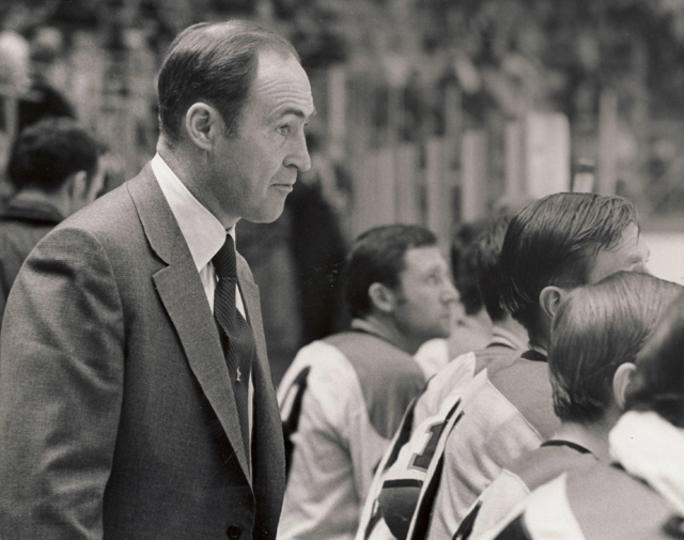Bigger Fan of NHL or NBA?
As many of you know, one of the major highlights of my broadcasting career has centered around the NBA, particularly the fact that I handled the play-by-play of every one of the memorable NBA Finals series between the Boston Celtics and the Los Angeles Lakers in the 80’s.
That magical decade included Doctor J and the Sixers battling the Lakers and the two-year run of the “Bad Boys”, better known as the Detroit Pistons, not to mention the emergence of the great Michael Jordan.
But the reality is, growing up, I was a bigger fan of the NHL than the NBA.
That’s right, while I loved pro basketball, I adored hockey.
I was a fan of the New York Rangers, who were mediocre at best, rarely making the playoffs in, what was then a six-team league. The original six, they called it.
The Original Six were made up of the Rangers, Boston Bruins, Detroit Red Wings, Chicago Black Hawks and the two Canadian teams, the Toronto Maple Leafs and the Montreal Canadiens.
The rivalries were fierce, as you might expect with each team playing 14 games against everyone else. Seven home and seven away. Often teams played home-and-home encounters with a team
over a few days.
The top four teams advanced to the Stanley Cup playoffs, with the first and third, and the second and fourth place finishers matched up in best-of-seven series. The two survivors would then face-off for the Stanley Cup.
Up until my college days, Montreal and Detroit were the powers. They dominated the league, with Rocket Richard, Boom Boom Geoffrion, and elegant Jean Beliveau leading the way for the Canucks, and Gordie Howe, one of the sport’s all-time greats, Ted Lindsay and Alex Delvecchio sparking the Wings. The Rangers managed to sneak into fourth place once in awhile, then get demolished, usually by Montreal in the playoffs.
I listened to every game I could on the radio, and watched a rare telecast when it was shown.
My Rangers played at home on Wednesday and Sunday nights. On Sundays, I would lie in bed waiting for the broadcast to begin on my transistor radio. I recall the games began at 8:15pm.
The station that carried the games, WMGM, aired a half-hour program live, from the Calvary Baptist Church in Manhattan from 8-8:30.
They would have to join the Rangers game in progress. So I would tune in, and and get my fill of organ music from the Church, wondering what was happening at Madison Square Garden. When the program ended, they would switch to the game, and it would be picked up with one team flying down the ice, crowd noise evident in the background, while I anxiously awaited a re-cap of the first 15 minutes, always hoping the Rangers might have taken a lead.
I did attend many games on Sunday night as well. All high schools in New York offered what was known as G.O. cards. General Organization cards which would get you admission to Madison Square Garden for 50 cents. The seats would be in the upper side and end balconies, far from the action, but a seat in the building, which was the only thing that counted.
My friends and I would arrive well before the game began, stopping by Nedick’s, a popular food shop located adjacent to the lobby of the Garden. There, we would enjoy a hot dog with mustard and relish, an orange drink, and read the latest issue of the Hockey News, filled with stories of every team, a review of the past week of action and a look at the minor league teams and their fortunes.
Yes, for me, hockey was big.
How big?
On Saturday nights, I would always stay home, working the dials of our radio in the kitchen, trying to find the broadcast of the Toronto Maple Leafs. There was incessant static, as I deftly tried to maneuver the dial to reach just the right spot to barely hear the call of the game on the Toronto station. Not an easy task, but one I mastered over the years.
So here I was, in my teens, attempting to listen to an out-of-town hockey game while other kids were out socializing and attending parties. Keep in mind, this was common for me throughout my high school years. On more than one occasion, my mother would walk by, and say to to my father, “Joe, what’s wrong with our son?”
Who could blame her.
In later years, I think she understood.
The play-by-play announcer for the Leafs was Foster Hewitt, who was
Canada’s premier hockey broadcaster for decades.
Foster Hewitt
Years later, when I worked in Boston for WBZ-TV, I sought out Hewitt at the hotel the Maple Leafs were staying for a Stanley Cup series against the Bruins.
I was 29 at the time, and I asked Hewitt how he was able to make a lightning-fast sport sound so measured, almost slow motion in his amazing description of the game. His reply, “young man, I cut the wheat from the chaff “.
In other words, he would merely say what was meaningful, without all the extraneous stuff.
I don’t think we get much of that style today.
Eventually the original six teams expanded to 12. The NHL decided to add the Los Angeles Kings, Minnesota North Stars, California Seals, St. Louis Blues, Philadelphia Flyers, and Pittsburgh Penguins to begin play in the 1967-68 season.
My first major television job was at KDKA-TV Pittsburgh. I arrived there in February of ’67. I was excited to be on hand for the start of big-league hockey in Pittsburgh, covering their initial training camp in Brantford,
Ontario and helping to introduce the NHL to a city that had an extremely successful team, the Hornets, in the American Hockey League, the top minor league in the sport.
A former Ranger coach, Red Sullivan was the first man to lead the Penguins, but soon after, he was replaced by Red Kelly, who helped lead both the Red Wings and later, the Maple Leafs to Stanley Cup championships.
Kelly was a legend in the sport, first as a defenseman, later as a center. He was also a legend as a person.
Red Kelly
I was fortunate to become friends with this man, who prior to his coaching the Penguins, was a Member of Parliament in theToronto area. He was married to an American figure-skating star Andra McLaughlin for 60 years, and they were proud of their son Patrick who was a Canadian speed-skater, competing in the same Olympics when Dan Jansen won his gold medal for the U.S. in 1994 in Norway. Describing Jansen’s achievement and being re-united with Red Kelly for the Games, is a
career highlight I’ll always cherish.
Red Kelly passed away at the age of 91 earlier this month.
My trail carried from the expansion days of the Penguins to the powerhouse era of the Boston Bruins where hockey has always ranked with baseball as that town’s primary sports. That was before the Patriots became Super Bowl perennials, and it was true even with the remarkable domination of the NBA by the Celtics.
Let’s rewind the tape back to the beginnings of expansion in the NHL.
The league decided that the winner of the Original Six in the playoffs would square off against the survivor of the expansion six.
In years one and two, the Montreal Canadiens swept the St. Louis Blues in four straight games to win the Cup.
In the third year, the Bruins captured hockey’s championship, also eliminating the Blues in four.
One of the enduring photos of all-time is the goal that won the Stanley Cup for Boston.
It shows Bobby Orr, virtually horizontal in the air, after scoring in overtime.
Bobby Orr – The Goal!
How coincidental, that as of this writing, the St. Louis Blues are one game away from reaching the Cup finals.
If they get there, they would be playing the Boston Bruins for all the marbles.
First time since year three of expansion.
Footnote on the PGA championship this past week.
Tiger Woods didn’t make the cut after his dramatic Masters triumph.
There’s nothing automatic in sports or in life.
Brooks Koepka saw his final round eight-stroke lead cut to one with still time to lose. Dustin Johnson was on the prowl.
I don’t believe that athletes “choke”. I believe they press and try too hard.
If they were “chokers” they wouldn’t have gotten to the level where people accuse them of “choking”
Koepka, the real deal, steadied the ship.
If you can say anyone fell short, it was Johnson.
With all his talent, he still has a lot to prove.
Brooks Koepka has nothing to prove.





